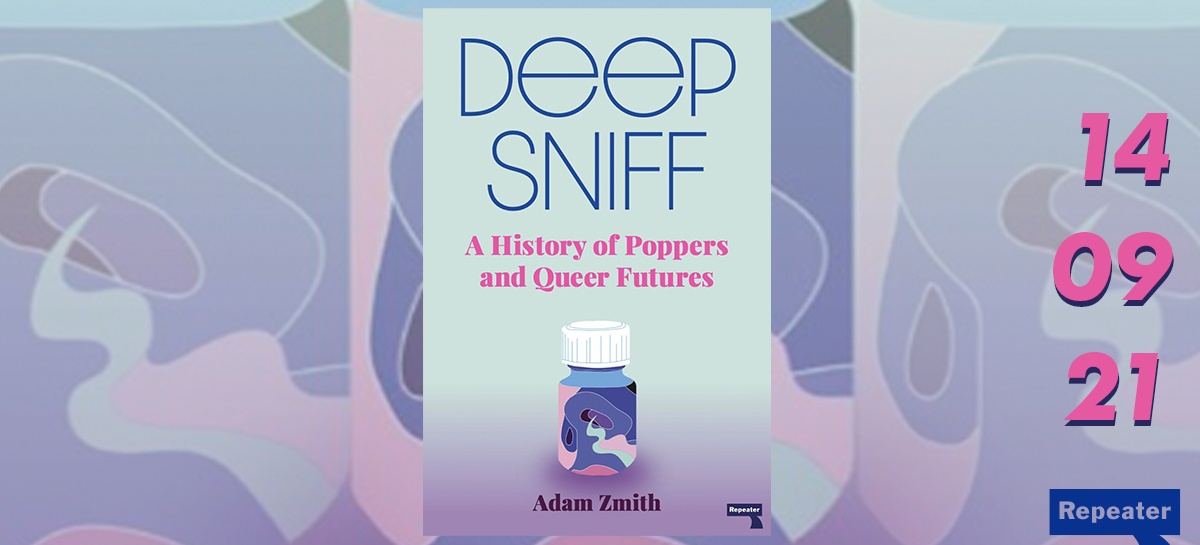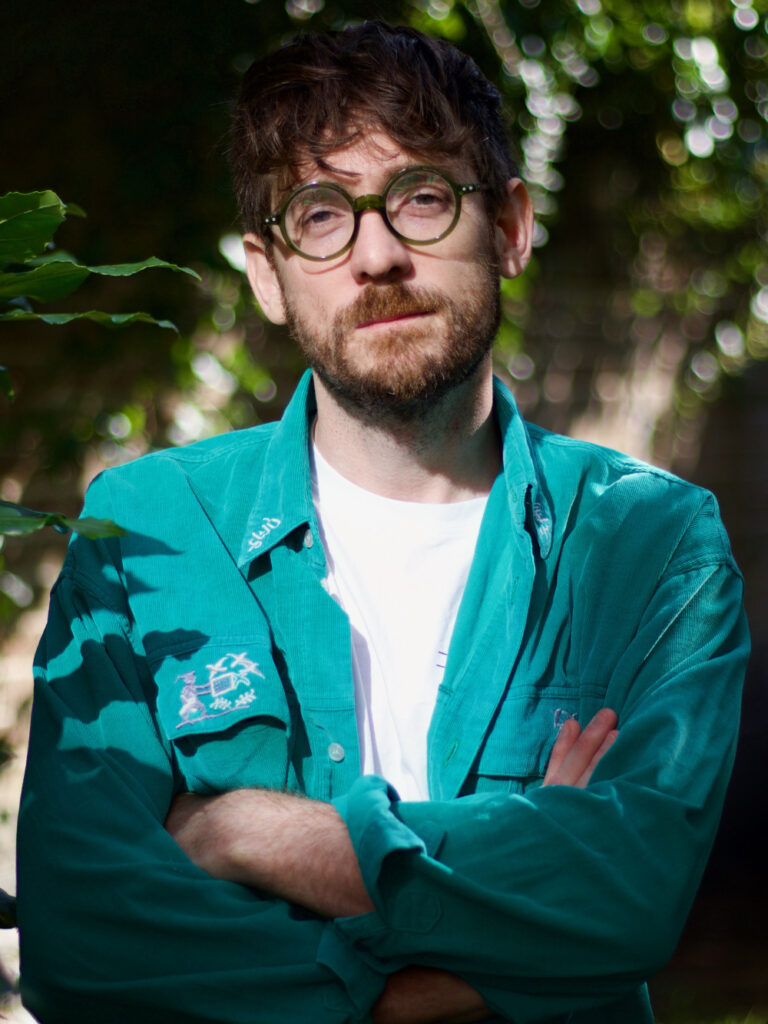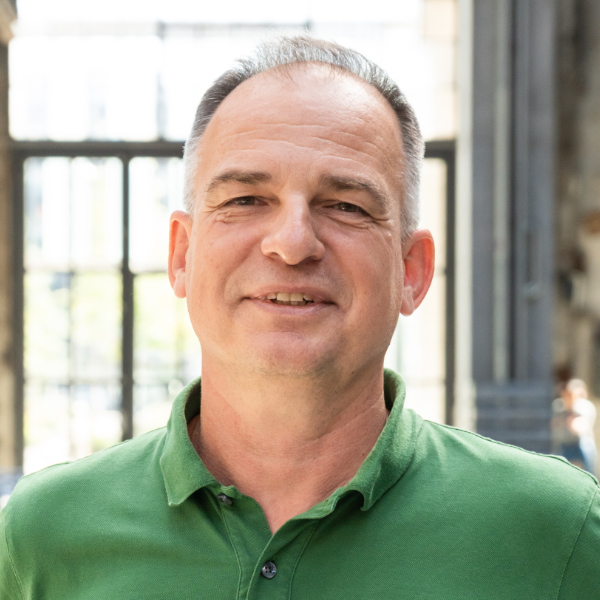
- Andreas Hungerbühler
- 1. September 2025
Deep Sniff – Poppers, Pleasure and Queer Futures
The book “Deep Sniff: A History of Poppers and Queer Futures” fascinated us so much that we decided to add it to our online shop. We wanted to learn more about the author of this remarkable work and his motivation for writing this award-winning book. That’s why we sat down with Adam Zmith for an interview — and we’re excited to share his insightful answers exclusively here on our blog.
Your book is a mixture of history, culture and personal experience. Was there a moment when it became clear to you: This is going to be more than just historical research – this is going to be my story?
It was probably the moment when I realised I was going to have to write about popperbator videos. I had been watching and using(!) these videos for a few years by the time I started writing the book, but I was initially more focused on the older history of poppers and how people used them – especially in the 70s and 80s. The more I thought about what poppers meant to me, in trying to connect with what they meant to people in those earlier times, the more I thought about how I was using poppers… and I was writing the book in various states of Covid lockdown, so I had a lot of time to myself, if you know what I mean. That extra time probably took me deeper into those videos, and everything connected. So if you’re asking about ‘a moment’ it’s probably: ‘yes, I was having a wank’.
You’ve written very openly about your own use of poppers. Were there passages you hesitated to publish?
Honestly not really. If you want to write something, you should just write it anyway – there’s no requirement to share it with anyone, or publish it. So as my personal story became more implicated in the bigger history, I decided to write it anyway… then I had to look at it and decide whether it fitted right with the book, and whether I wanted to reveal these things. The fact that I hadn’t read much about poppers use from other authors – and that people didn’t even seem to talk about it! – meant that I did want to include it in the book. Let’s talk!
Which reactions from your personal circle surprised you most after publication?
Everyone had their own story about doing something mad with poppers!
In Deep Sniff, you connect science, gay subculture and popular culture. Which historical phase of poppers history fascinated you most – and why? Probably the phase that I couldn’t find out much about – the moment when poppers use transferred from the medical reasons to the recreational. I suspect it was between the 1920s and 1940s, and it could have been horny medical students or doctors who had access to amyl nitrite… The greatest mystery of the twentieth century?
How do you think poppers culture would have developed if HIV/AIDS had never Existed?
I love speculative history! I think it’s perfectly possible that there’d have been another reason why people turned against poppers – they are about helping people to enjoy the pleasure of their bodies, and some people hate that idea. So probably anti-gay or anti-sex figures would have made a campaign against poppers anyway, maybe seizing upon an accidental death and making it a cause célèbre.
Are there countries or scenes today where poppers play a completely different role than in the UK or USA?
You can buy them easily in the UK, and fairly easily in the USA (although this could be shifting right now). So in countries that are similar but where it’s illegal, like Spain, people have them, but they get them from visiting friends, or only mail order. Then there are countries where they’re just not part of the culture much at all. Honestly I’m not sure – I’d love to know what it’s like in countries in Africa and Asia.
A familiar pattern emerges in public debate: Queer sexuality is often problematised under the guise of “health protection” – whether through the alleged connection between poppers and HIV or through resistance to sex education. Is this really just the old moral reflex in new clothes?
Yes. Always.
In the US, “Don’t Say Gay” laws restrict the visibility of queer topics in education. In Europe, movements are organising against diversity and sexuality education programmes, and attacks on Pride events are increasing. Are we at the beginning of a new wave where queer pleasure is deliberately constructed as an enemy?
Yes. We’re in the wave right now. It might not be a wave that breaks; if we don’t fight it, it could become how we have to live forever. I think something that’s different this time is that due to the huge range of content and ways of making and distributing content, as a society we’re really divided and there are circles of gorgeous queer pleasure and circles of those who are against this. The power of the law, the state and the police is the scary thing, because right now that rests with the circles of those who are against queer pleasure. In London where I live, clubs that want to host sex are required to have a licence, but there are few available, they are expensive, and there are always moves to cut the number to zero.
Deep Sniff celebrates pleasure as part of queer identity. Yet opponents deliberately use old stigma patterns to connect pleasure with illness, danger and moral decay. How can one politically defend pleasure when these narratives are so deeply entrenched?
I wish I knew. I struggle to think about political strategy. It’s not my field. I work in culture, because that’s a battleground where I have something to offer. So my answer to that question is to keep making culture that open minds, celebrates pleasure, and represents queerness. Culture, such as books, films and music, really does change hearts and minds – this comes first, before politics.
In the US, Robert Kennedy Jr. has repeatedly blamed poppers for the emergence of HIV/AIDS, citing Peter Duesberg. At the same time, we’re experiencing increased resistance to queer visibility in Germany, Switzerland and other countries. Are we witnessing a revival of the moral-political battle lines of the early ’80s under Thatcher and Reagan?
Yes. But it’s more sophisticated this time, and more scary due to how social media works.
You’ve created a playlist for Deep Sniff. Which three songs would you describe as the “soundtrack of poppers history”?
Love this question!
I Am What I Am by Village People because it’s a gay rights anthem from 1978 and the story of poppers is tied to our liberation struggle
Do You Wanna Funk? by Patrick Cowley with Sylvester because it’s the soundtrack to gay disco in 1982 and the dancers back then knew that it was a great song to sniff poppers to Geryon by TR/ST because it was used in a very early and iconic popperbator video 😉
Imagine a sex-positive future where poppers are legal and accepted worldwide – would that be a step towards liberation or would it create new problems?
Probably both. I stand behind the development and use of substances that help us to experience the pleasure of our bodies, and I think history shows that people always do this, so really our task as a society is to find ways so that we can do these things safely. They always create new problems too, with people not having the right information or misusing them. Hence, we need info and safe practices.
If money and time were no object: What research on poppers would you commission immediately?
Long-term trials of the different substances in poppers and what their health impacts are on different kinds of bodies. Right now there’s no pressure for manufacturers to do this, and they don’t know the answer, so I think we should have more knowledge so that we can continue to use them safely. Oh, and I’d also like to do the historical research on how they moved from medical to recreational uses around the 1930s/40s.
Has your own relationship with poppers changed since writing the book?
People expect me to bring poppers to the party! Sometimes I do… but if I don’t, I can now be confident at the party that poppers will somehow find me… ha!
What do you hope readers will feel or think after the last page of Deep Sniff?
I want them to think (to know) that their body is full of the potential for pleasure. And I want them to find a way to feel this, however they do that, poppers or not.
What do you think of the recent developments on Poppers bans in the USA (Double Scorpio Ban March 2025)?
Worrying. Predictable. Unfair. Scary. Misguided. Dumb. Backward.
What do you recommend to governments and regulators around the globe when it comes to regulation of Poppers and Poppers Policy?
Listen to people who use poppers. Understand queer history. Commission health research.
What are your future plans as an author?
I’m still promoting my second book, Solemates, which is a history of our fetish for feet. And I’m preparing to release my third early in 2026: it’s called The Log Books: Voices of Queer Britain and the Helpline that Listened, it’s co-written with Tash Walker – we’ve spent six years reading the handwritten notes of people who took calls from LGBTQ+ people who needed help in the 70s, 80s and 90s, and written about this hidden history. I’m super excited to share it with readers who love queer history and queer life.

Adam Zmith - Short Biography
Adam Zmith is a British writer, journalist, and podcast producer with a focus on LGBTQ+ topics and queer history. In 2022, he won the Polari First Book Prize for his debut work “Deep Sniff: A History of Poppers and Queer Futures,” a cultural-historical examination of poppers in queer culture. His podcast work has been honored with multiple British Podcast Awards, including “Podcast of the Year 2024.” Previously, he worked for nearly four years at The Economist, where he led the social media team. His work combines history, sexuality, politics, and physicality through an interdisciplinary approach.
